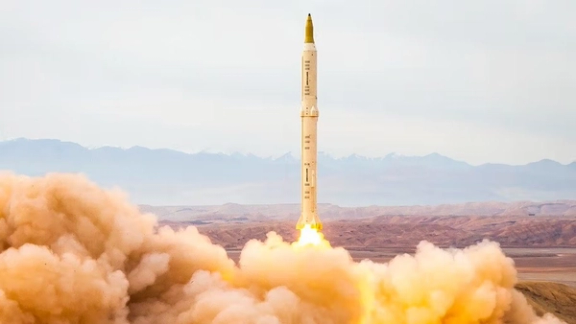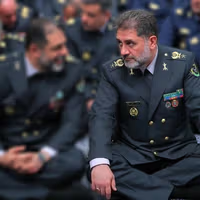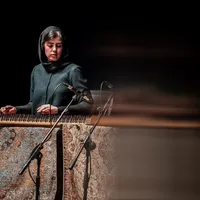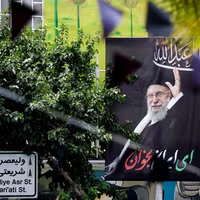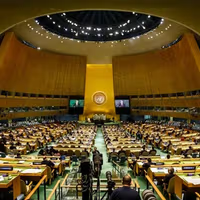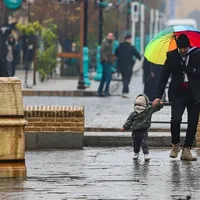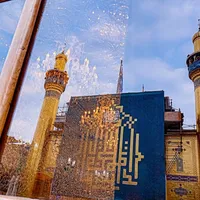'Ship has sailed' for barred UN inspectors’ readmission to Iran - UN nuclear chief
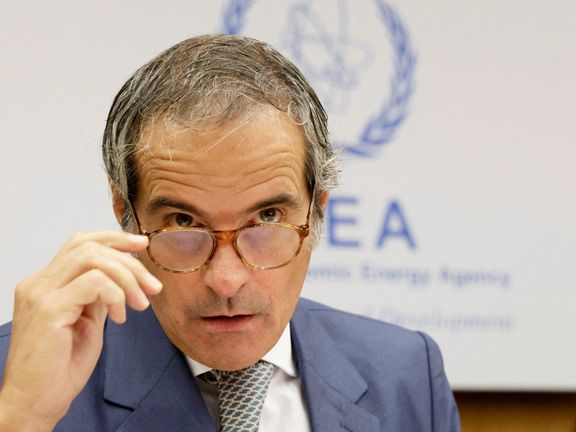
While the United Nations’ nuclear watchdog continues to urge Iran to readmit inspectors barred from the country, its nuclear chief says the chances are now unlikely.

While the United Nations’ nuclear watchdog continues to urge Iran to readmit inspectors barred from the country, its nuclear chief says the chances are now unlikely.
Speaking in New York on the sidelines of the UN’s General Assembly, Rafael Grossi said: ”Unfortunately this ship has sailed.”
The head of the International Atomic Energy Agency has long warned of Iran’s proximity to nuclear weapons, earlier this year saying it was “weeks, not months” away.
One year ago, Iran banned what Grossi said comprised one third of the team dedicated to monitoring the country’s nuclear program, branding them “extremists”.
At the time, the head of the Atomic Energy Organization of Iran (AEOI), Mohammad Eslami, said that those expelled had a history of "extremist political behavior”, contradicting Grossi’s statements and saying only an "insignificant" number had been barred.
The IAEA called the move "unprecedented" and a "very serious blow" to its work.
In June, the IAEA's 35-nation Board of Governors passed a resolution calling on Iran to step up cooperation with the agency and reverse the barring of those inspectors, technically known as 'de-designation'.
This week, Grossi told Reuters, ”Until a few months ago they said they were considering and now they say they are not going to reincorporate these inspectors to the list, so unfortunately this ship has sailed.”
An IAEA report in August said that Iran had told the agency in June that its position "with regard to the de-designation of those inspectors is unchanged and this position will remain as it is”.
Grossi is now pushing to meet Iran's new president Masoud Pezeshkian next month to appeal to the new premier who is seeking to elevate Iran’s place on the world stage.
Taking a more moderate approach than his predecessors, during his his first speech at the UN, Pezeshkian, who took office in July, said: “I aim to lay a strong foundation for my country’s entry into a new era, positioning it to play an effective and constructive role in the evolving global order”.
Today, Iran is enriching uranium to up to 60 percent purity, close to the roughly 90 percent needed to be weapons-grade. It has enough uranium enriched to that level, which if enriched further could produce almost four nuclear bombs, according to the IAEA's August report.
Unprecedented, the IAEA says no other country has enriched uranium to that level without producing a bomb.
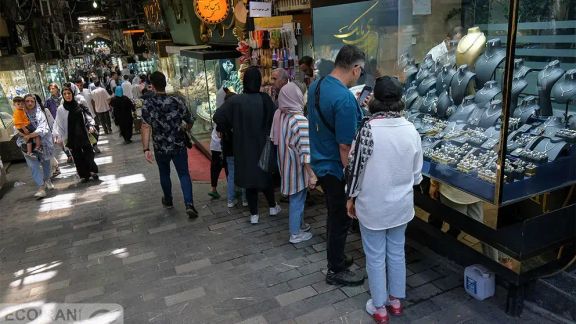
The head of Iran's Customs reported that approximately 43 tons of gold bullion, valued at $2.5 billion, were imported into the country during the first six months of the Iranian calendar year, from March 21-September 20.
The figure represents a sixfold increase compared to the same period last year, when only 7.3 tons, worth $466 million, were imported.
Mohammad Rezvanifar noted that most of the gold was cleared through the International Imam Khomeini Airport in Tehran, with a small percentage handled by customs offices in various other locations across the country.
In a similar period last year, 7.3 tons of gold bullion, valued at $466 million, were imported into the country. This year, "96.8% of the imported gold bullion was brought in and cleared through Imam Khomeini Airport Customs,” he said on Tuesday.
Regulatory shifts impacting gold imports
Iran has been adjusting its approach to foreign exchange regulations in response to international sanctions. Exporters, particularly those dealing in petrochemicals, steel, and oil products—key sectors in the country's non-oil exports—have been allowed to import gold as an alternative to repatriating foreign currency earnings.
However, a directive issued in June by the Central Bank, halted the practice for some exporters. Observers have pointed out that the surge in gold imports may reflect broader efforts by the country to shield its economy from currency shortages and manage international trade amid sanctions.
Conflicting reports on Central Bank's gold reserves
The rise in gold imports comes amid conflicting reports regarding the true state of Iran’s gold reserves. During Mahmoud Ahmadinejad's presidency, the Central Bank stopped regularly disclosing its gold reserves and import data, attributing the decision to the impact of sanctions.
In 2011, then-Governor Mahmoud Bahmani said that Iran’s reserves stood at 500 tons—a figure that was later debunked. Subsequent reviews under Hassan Rouhani's government revealed that the actual reserves in 2011 were around 45 tons.
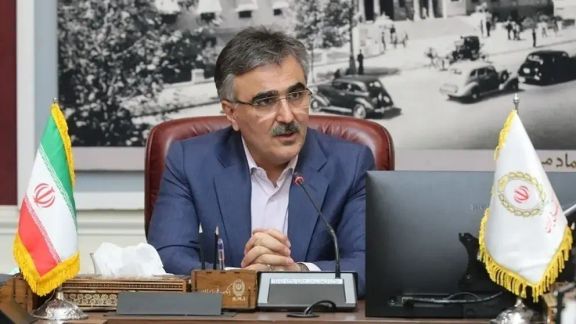
In July, Mohammadreza Farzin, the Central Bank governor appointed by Ebrahim Raisi, without mentioning the amount of gold reserves, said: “One of the main goals of the Central Bank is to increase currency reserves, and it can be confidently stated that free currency and gold reserves are increasing.”
The August gold rush
An unprecedented public rush to buy gold occurred on August 18, driven by social media campaigns promoting the superstition of "good fortune" on that particular day. The sudden surge in demand shocked officials, with the vice president of the Iran Gold and Jewelry Union noting that he had never seen such a phenomenon in his 64 years in the market.
Although specific data on the amount of gold sold that day hasn’t been released, the Customs report on gold imports might help explain the surge. Some have speculated that the promotions to increase gold sale to citizens were linked to entities within the government to offload gold imported for currency stabilization. Thus, the owners of those 42.8 tons of gold likely managed to sell a portion of the imported gold during the rush.
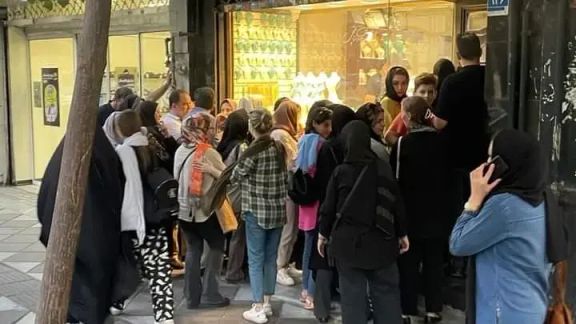
Gold-for-drones
Iran's use of gold in international transactions has a long history, often as a tool to bypass international restrictions on currency flows. In February, a hacking group exposed documents from Tondar Sahra, a company involved in drone technology and reportedly linked to the Islamic Republic’s military.
The hacked documents showed Russia paid Iran approximately $1.75 billion in a deal for Shahed-136 drones. Part of the payment was made with several tons of gold ingots.
The leaked files also detail the establishment of a production line in Russia for these drones, set up by Alabuga Special Economic Zone, a Russian state-backed entity. This arrangement allows Russia to manufacture Shahed drones domestically, reducing costs and dependency on imports from Iran.
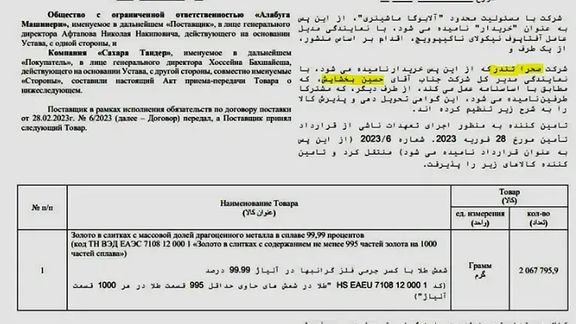
During Ahmadinejad's tenure, it was revealed in a court session involving Babak Zanjani, an Iranian oil sales middleman, that 1.5 tons of gold had been purchased from Africa. Zanjani testified that the gold, coordinated by the Central Bank, was seized in Turkey and later found to be fake when it arrived in Dubai.
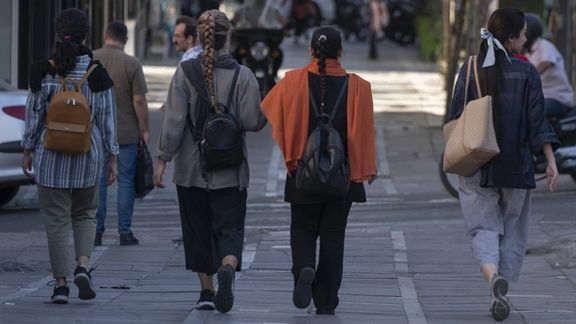
Despite Iran’s new president, Masoud Pezeshkian, pledging to end harassment by the notorious 'morality police' over violent hijab enforcement, the parliament has moved forward with passing a new restrictive law.
At his first press conference, responding to a female journalist's complaint about the morality police, Pezeshkian remarked, "They were not supposed to harm. We will follow up to ensure they don't bother you." During the election debates, he had an even more critical stance, referring to compulsory hijab enforcement as a “dark agenda.”
However, just two days after this statement, the Guardian Council approved the restrictive hijab law passed by the previous parliament in May 2023, imposing a range of restrictions and punishments on women’s clothing choices.
Later, the firebrand Friday prayer leader of Mashhad, Ahmad Alamolhoda, criticized Pezeshkian’s stance, saying, "The administration may not agree with a particular method of enforcement, but it has the authority to implement an alternative approach... however, rejecting the hijab is intolerable."

Reports indicate that the activity of the morality patrols has decreased since the start of the new administration, though this pattern has been seen in previous governments as well. The vice police patrols have historically been periodic and seasonal.
Meanwhile, many women in Tehran and other major cities have continued to defy the mandatory hijab since the 2022 protests following the death of Mahsa Amini in morality police custody. Since then, violent arrests have persisted, keeping the government on edge as it faces the constant threat of renewed public unrest.
The approval of the new hijab law, while the previous one remains unenforced, has drawn criticism from government-backed clerics. The challenge now is how to address these contradictions.
Three strategies for compulsory hijab enforcement
When analyzing the decisions of the Guardian Council, parliament, and officials' statements, alongside field observations, it appears the government has adopted a three-pronged strategy regarding the controversial hijab enforcement.
First, the strategy involves delaying the implementation of the new hijab law, even after its formal approval. This approval seems designed to appease Shia clerics, religious authorities, and Sharia-oriented officials within the ruling class. However, the law may remain unenforced, much like the longstanding ban on satellite TV equipment, which, after years of raids and confiscations, was largely ignored or forgotten. The public, accustomed to the inconsistent enforcement, is unlikely to protest the lack of rule of law, while religious loyalists will gradually shift focus and forget the issue.
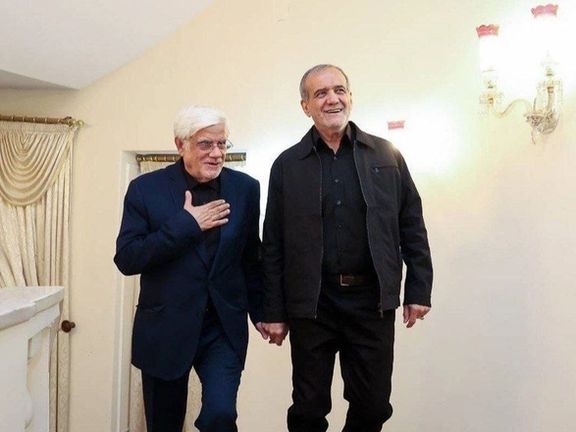
The second strategy involves reverting to the previous method of enforcement—seasonal and periodic implementation of the new hijab law (such as the usual crackdowns every early summer) to maintain a constant level of intimidation. Simultaneously, the government may distance itself by unofficially suggesting that enforcement is not carried out by government or municipal employees, but by self-motivated individuals. This approach mimics the "volunteer" narrative seen with the Hijab Watch plan, where the Tehran municipality’s funding and involvement were quickly exposed despite claims of grassroots enforcement.
In this scenario, the law isn't entirely abandoned, keeping Sharia-oriented factions somewhat satisfied. Meanwhile, the president can claim, as others before him have, that "we don’t have enough power to stop it." This allows the Sharia believers to perceive Pezeshkian’s administration as sidelined on issues like internet filtering and hijab enforcement, despite its public stance.
The third strategy involves keeping the enforcement of the hijab law experimental rather than fully legal. Authorities may test the law in select provinces for a limited time, gauging societal reactions. If the law generates sufficient intimidation, it will be enforced; if not, it could be quietly abandoned, much like the satellite TV ban. If the majority comply and only a small group resists, the law would then be fully implemented.
This approach reflects a trial-and-error method, balancing power between the people and the government, and is aimed at preventing uprisings like the Mahsa Revolution. This perspective is reportedly supported by members of Khamenei's office and authoritarian factions. Notably, compulsory hijab wasn’t introduced by law—it was enforced in 1980, years before the hijab law was passed in 1985. Thus, the power struggle between the government and the people has always been the key factor.
Given society’s sensitivity and the sharp divide between authorities and the public—92% of whom are dissatisfied—this third strategy seems more likely. The regime understands that daily confrontations with ordinary citizens on the streets could threaten its survival.
Opinions expressed by the author are not necessarily the views of Iran International
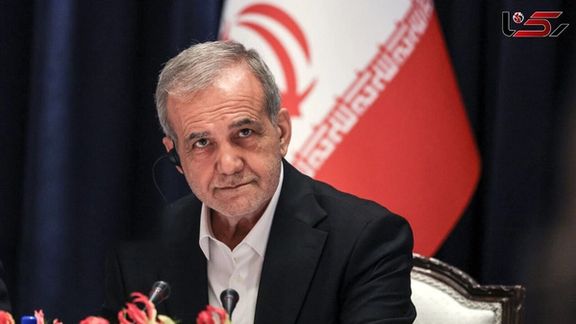
While some of President Massoud Pezeshkian's aides and supporters praised him for everything—even the smooth landing of his plane in New York—others have sharply criticized him for several of his comments during the visit.
Iranian social media users compared Pezeshkian’s call for mutual disarmament between Iran and Israel to former Soviet leader Mikhail Gorbachev, suggesting that Pezeshkian is attempting to trigger the decline of the Islamic Republic, much like Gorbachev did with the Soviet Union.
Others, mostly loyalist hardliners in Tehran, have gone as far as calling for Pezeshkian’s impeachment and removal upon his return to Tehran. On Wednesday, thousands of Iranian social media users trended the hashtag #Pezeshkian's_Impeachment in Persian.
The hardline newspaper Kayhan which is close to Supreme Leader Ali Khamenei's office used strong words in condemning Pezeshkian and Foreign Minister Abbas Araghchi for their remarks in New York. In a commentary headlined "Pezeshkian's uncalculated remarks, who is advising the President," the Kayhan wrote that Pezeshkian's comments were surprising and played into the hands of international and regional media.
After arriving in New York, Pezeshkian held a closed-door meeting with American reporters and columnists. Following the meeting, reports surfaced claiming he had suggested mutual disarmament if Israel agreed to do the same. While his foreign minister quickly denied these claims, Iran International obtained an audio file of the meeting, confirming that the Iranian president had indeed made those remarks.
Pezeshkian said, "We are prepared to give up all our weapons, provided Israel also disarms, and an international organization steps in to ensure security in the region. We don't even need them—we know how to secure our own safety."
Kayhan criticized Pezeshkian's remarks as a "slip of the tongue" and faulted him for his inability to deliver effective speeches. Kayhan argued that these comments could be interpreted as Iran recognizing Israel, contradicting the principles of the Islamic Republic’s founder, Ruhollah Khomeini, and Supreme Leader Ali Khamenei.
The daily went on to advise Pezeshkian to dismiss his current advisers, particularly those behind the 2015 nuclear deal—presumably Vice President Mohammad Javad Zarif, Foreign Minister Abbas Araghchi, and Deputy Foreign Minister Majid Takht Ravanchi. Kayhan accused these individuals of lacking a proper understanding of international relations.
Meanwhile, the IRGC's daily newspaper Javan also harshly criticized Pezeshkian and called him a poor speaker and repeated Kayhan's accusations about his advisers. "Those who brokered the nuclear deal are saying that they will remain in New York for a few days after Pezeshkian leaves on Wednesday and try to pretend that they can have some achievements during those few days."
Javan quoted Pezeshkian's statement and sharply criticized both him and his advisers. The hardline newspaper condemned the idea of disarmament, taking aim at the presidential team for suggesting that after Iran and Israel lay down their arms, “an international organization can restore security in the region, although even that is not necessary." The paper directly blamed his advisers, holding them responsible for what it labeled a "shambolic statement."
Meanwhile, another hardline daily, Hamshahri, published by the Tehran Municipality, praised Pezeshkian as "The Voice of the Oppressed Palestinians" and commended the Iranian delegation's diplomatic efforts to build a consensus against Israel in New York. However, the paper did not specify which countries were aligned with the Islamic Republic in this so-called "consensus."
Ironically, the reformist daily Etemad, whose managing editor Elias Hazrati, acting as the government's News Dissemination Chief, had denied Pezeshkian's comments on Tuesday, ran a commentary titled "We are prepared for negotiations." The piece largely contradicted Hazrati’s stance as a state official. Critics had already flagged a potential conflict of interest when Hazrati was appointed to the post earlier in the month.
Ali Khamenei, the ultimate decider in Tehran, has remained silent on Pezeshkian’s visit to New York, likely giving him some leeway to portray the Islamic Republic as a reasonable regional power. Pezeshkian’s presidential campaign and post-election statements have consistently emphasized that lifting US economic sanctions is a top priority for a state facing both a serious economic crisis and the threat of war with Israel.
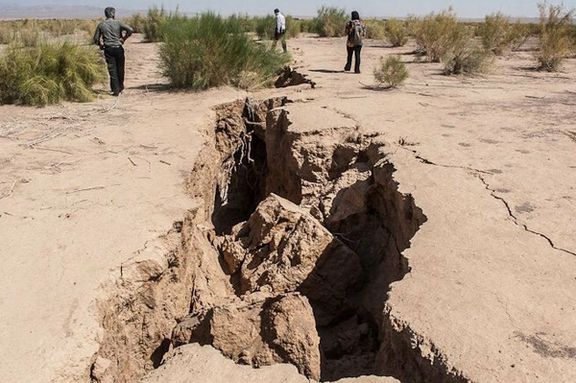
Groundwater depletion in Iran is approaching a critical threshold, a detailed new study has found, leading to the subsidence of broad swaths of land across the country.
Satellite imagery highlights cracks and sinkholes emerging in various regions, with parts of Iran sinking at a rate of over 10 centimeters per year due to the excessive tapping of groundwater.
According to researchers cited by the Guardian on Wednesday, it could take hundreds if not thousands of years for the water resources to be naturally replenished.
Mahmud Haghighi and Mahdi Motagh from Leibniz University in Germany analyzed satellite data collected between 2014 and 2020 to assess the impact of groundwater extraction in Iran.
The findings, published in Science Advances, indicate that 3.5% of Iran’s land area is experiencing significant subsidence primarily due to the overuse of groundwater for irrigation. This subsidence is not only affecting agricultural regions but also infrastructure, including airports, roads, and railways.
Among the hardest-hit areas is Kerman province, located in southeastern Iran, which is known for its pistachio production. In this region, subsidence rates exceed 35 centimeters annually, posing a threat to both the local economy and the safety of the area’s infrastructure.
Depletion of groundwater has far-reaching consequences, contributing to the increasing number of sinkholes and land cracks that have begun to impact cities across the country.
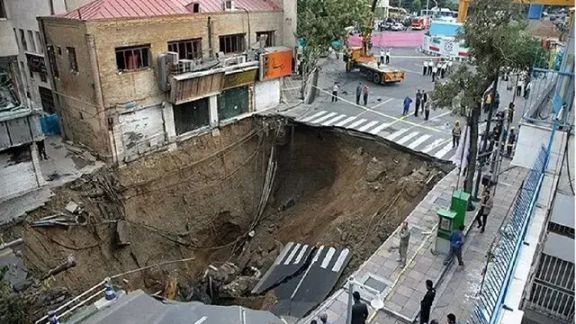
In the city of Gorgan in northern of Iran, ground subsidence caused a sinkhole to open up, swallowing two vehicles. Witnesses described how the ground suddenly gave way, creating panic among those nearby but no injuries.
A similar incident occurred at another location in the city only days earlier.
The Guardian reports that Iran’s rate of land subsidence ranks among the highest in the world, with experts warning that the damage in some regions may be irreversible due to the complete collapse of aquifers. The extraction of groundwater is pushing the country, home to nearly 90 million people, towards an escalating water crisis.
“There is an urgent need for immediate action and a coherent groundwater policy,” said Motagh, stressing the importance of finding solutions before the problem becomes completely unmanageable.
Last year, reports emerged indicating that the Iranian government had withheld information regarding the worsening subsidence issue.
In March, Iranian experts described the land subsidence situation as "critical," warning that it endangers the lives of over 39 million people.
Contributing factors include dam construction, climate change, inefficient water usage in agriculture and industry, and the over-extraction of underground aquifers through illegal agricultural wells. These issues now pose a significant risk to millions across the country.
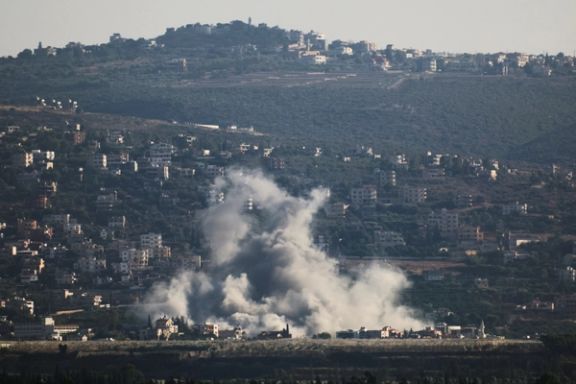
The United States distanced itself from Israel’s stepped-up attacks in Lebanon on Wednesday shortly after the Israeli army chief hinted at a ground invasion against Hezbollah.
"When it comes to Lebanon, the U.S. military has no involvement in Israel's operations," Pentagon spokesperson Sabrina Singh told reporters, adding that an Israeli incursion did not appear imminent.
Israel has been targeting Hezbollah positions inside Lebanon since Monday, killing hundreds and injuring thousands.
"We keep striking and hitting them everywhere," Israel’s military commander Herzi Halevi told troops on Wednesday. "Your military boots ... will enter enemy territory, enter villages that Hezbollah has prepared as large military outposts, with underground infrastructure, staging points, and launchpads into our territory and carry out attacks on Israeli civilians", he added.
Tensions in the region have escalated sharply, with Israeli air strikes targeting Hezbollah leaders and hitting hundreds of sites across Lebanon, forcing hundreds of thousands of people to flee from the border area.
Hezbollah in turn has launched rockets and missiles towards Israel.
A missile reached Tel Aviv for the first time, according to a spokesperson for the Israeli government, who said that the missile was intercepted by Israel’s aerial defense system.
Hezbollah said the target was Israel's vaunted intelligence agency, Mossad.
President Joe Biden acknowledged on Wednesday the risk of an all-out war in the Middle East but also expressed hope for a possible settlement to the escalating conflicts in Gaza and with Hezbollah.
Singh, the Pentagon spokesperson, described the administration’s diplomatic push as a “full-court press”.
The Biden administration has been trying to avoid a full-scale war for nearly a year since October 7.
“Escalating this to an all-out war seems counterproductive to the stated objectives [of the Israeli government] which is peace and security along that line,” White House spokesperson John Kirby said, referring to Israel's border with Lebanon.
Iran’s Supreme Leader Ali Khamenei on Wednesday accused the U.S. of backing Israel's ramp up of bombings and air strikes in Lebanon, rejecting Washington’s repeated assertions that it had no prior knowledge of attacks against Iran and its regional allies.
“In this battle, the (Israeli) enemy is equipped with the most advanced resources, and the United States stands behind it,” Khamenei said Wednesday, in his first substantive reaction since Israel began days of crushing attacks against Hezbollah that have killed hundreds and injured thousands.
